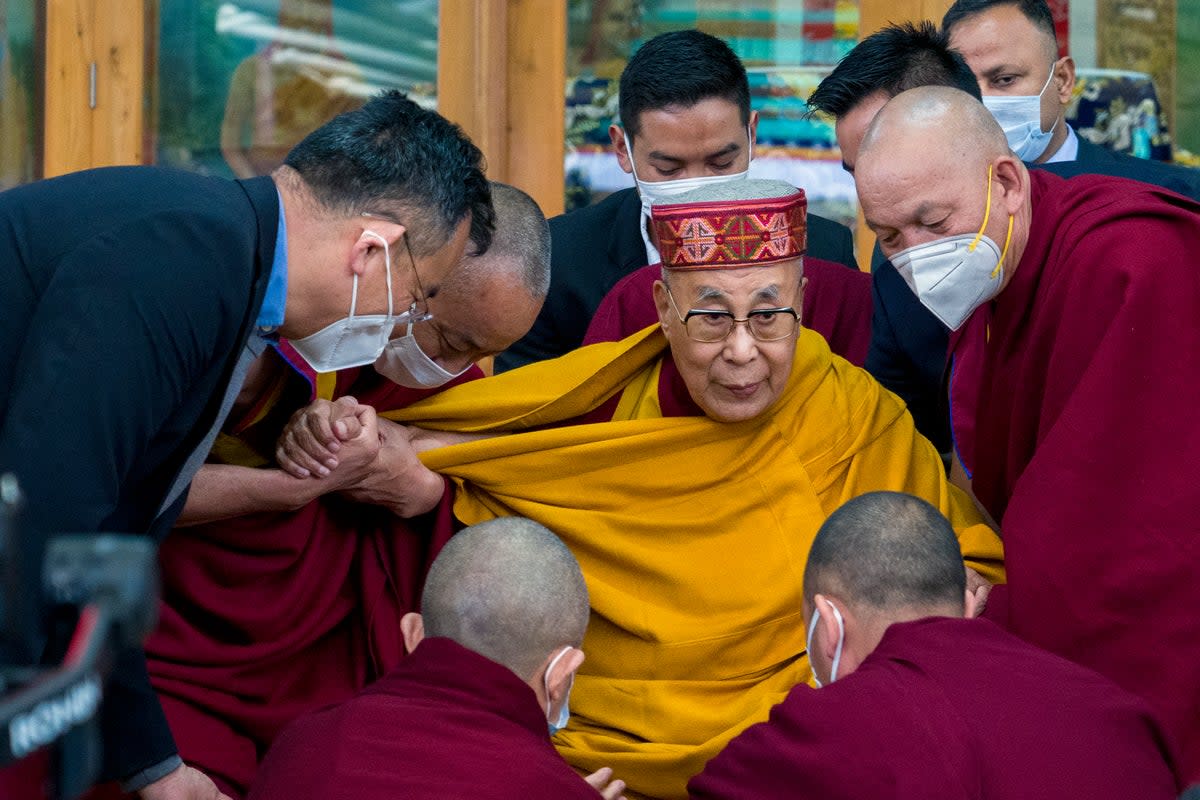US Congress passes bill asking China to improve ties with Tibetan leader Dalai Lama

The US House of Representatives has passed a bill urging China to improve its relationship with Tibetan religious leader Dalai Lama, even though Beijing has repeatedly accused him of being involved in “separatist activities” in the Himalayan province.
The House passed “Promoting a Resolution to the Tibet-China Dispute Act” on 12 June and it now awaits president Joe Biden’s approval.
China asserts that Tibet has been part of its territory for centuries although it only took firm control of the region after the Communist Party came to power in 1949.
The bipartisan legislation, already passed by the Senate, emphasises the Tibetan people’s right to religious freedom and aims to allocate funds to combat what it describes as “disinformation” from Beijing regarding Tibet’s history, people and institutions.
The bill, introduced in the Senate by Democrat Jeff Merkley, encourages China and Tibet to resolve their dispute over the province’s governance.
“Tibetans, like all people, have the right to religious freedom which includes freedom from surveillance, censorship and detention,” Michael McCaul, Republican chair of the House Foreign Affairs Committee, said.
Rep Jim McGovern, a Democrat, said: “Congressional passage of this legislation further demonstrates America’s resolve that the status quo – both in Tibet and elsewhere – is not acceptable.”
“I look forward to this important effort becoming law and working with my colleagues in the Senate and with the administration to ensure swift and effective implementation.”
China has rejected accusations of human rights abuses in Tibet as “groundless” and claimed they are intended to “smear” China’s image.
Last August, Chinese foreign ministry spokesperson Wang Wenbin said the “human rights conditions in Tibet are at their historical best”.
“The region has long enjoyed a booming economy, a harmonious and stable society, and effective protection and promotion of cultural heritage,” he said. “The rights and freedoms of all ethnic groups, including the freedom of religious belief and the freedom to use and develop their ethnic groups of spoken and written languages are fully guaranteed.”
US Senate unanimously passes bill urging China to resolve Tibet dispute
The U.S. Senate on Thursday unanimously passed a bill urging the Chinese government to engage in dialogue with the Dalai Lama or Tibetan leaders, without any preconditions, to resolve the China-Tibet dispute. pic.twitter.com/4Y3y7hKbLD— Spring0527 (@Spring02060527) May 29, 2024
In April this year, China ruled out any dialogue over the Dalai Lama’s longstanding demand for autonomy for Tibet.
The Dalai Lama, who ruled Tibet autonomously until Beijing annexed it in the early 1950s, fled to India in 1959 and established a government-in-exile in the northern city of Dharamshala.
The government-in-exile accuses China of denying fundamental human rights to the people of Tibet and actively working to eradicate Tibetan identity.

 Yahoo News
Yahoo News 
